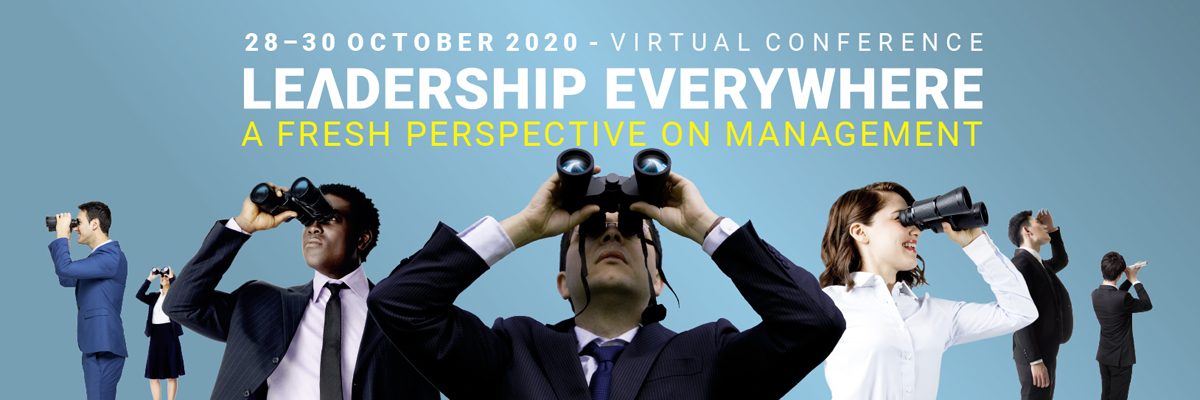Altruism perfectly fits in with inclusive prosperity. Open innovation (OI)-driven growth with knowledge, competencies, and skills freely exchanged across cultural groups is the zeitgeist of the 21st century, characterized as it is by its emphasis on the widest possible access to new knowledge and resources, producing beneficial effects in new entrepreneurial ventures. Emerging from this is a hybrid culture reflecting various strands of OI, in which altruism can be included together with open experimenting that can be unconventional.
Stating that altruism is serving OI is tantamount to saying that altruism is a practical social innovation. Inward-looking, selfish organizations minimize cooperation and so stifle open innovation. Altruism opens up a promising prospect for an outward-looking approach to innovation by seeking to maximize co-operation even among competing firms – the so called ‘co-opetition’ model, a competitive and at the same time cooperative approach to collaboration. Through being unselfish, the worker is seen as a team member, rather as a factor of production whose abilities to do critical thinking, communicate, collaborate, and chase new opportunities are essential components of OI processes.
In the innovation field, there are complex configurations of distinctive, differentiated ideas and principles with many connections. Some ideas and principles are an expression of individualism, from a moderate to extreme, which relegate human relationships within their family circle. Other ideas and principles flow from spontaneous collaboration among free people favourably disposed towards altruistic practices.
In a closed environment, innovation takes shape by “the astounding belief – in words attributed to John Maynard Keynes – that the most wickedest of men will do the most wickedest of things for the greatest good of everyone”. In contrast, in an open environment, people and organizations whose nature is altruistic, are biased towards cooperation, and are more likely to sharing, and shape innovation. According to David Sloan Wilson, an evolutionary biologist, in the communities in which selflessness is strongly rooted in the social fabric, the altruistic groups do better than selfish groups over time.
Locked in individualistic behaviour, the selfish managerial hand grabs the stick. In an open environment, the entrepreneurial hand of altruism holds a carrot cultivated in the community garden, tended by the entrepreneur-gardener. The stick symbolizes competition – ‘I win, you lose’. The carrot brings opportunities that creates benefits for all. The carrot is the inclusive victory.
In the new Theatre of Economics at the second decade of the 21st century, Homo Oeconomicus, the selfish individualist aiming at maximizing her utility, is no longer the protagonist. Homo Socialis appears, whose propensity to altruism and spontaneous socialization is a crucial added value for common good. The heart of today’s economic and social life is the co-evolution of entrepreneurship, science and technology, and behavioural patterns. From this perspective if we examine start-ups in the evolutionary phase we note that, motivated by imagination, intuition and enthusiasm, they widen the field of opportunities. The more the field is extended, the more the room for the creation of novelty and continuous adaptation, producing a collective advantage. The selfish efficient agent who makes use of all available resources to improve her performance gives way to the altruism of the effective agent who shares with others her own funds in order to be able to do more and differently.
The debate continues between economists. Is it the unbridled individualism that characterizes individuals, all centred on their personal interests? Or are individuals selfless, while solipsists are organized groups of special interests which are fragmented by what we call “community”? This dilemma does not have an unequivocal answer. In the course of events the pendulum swings, between the two hypotheses. To move in the direction of altruism, individuals and their collective representatives should learn how to start and operate at full potential, multiplying social progress and economic development. Practicing altruism on a reciprocal basis, resorting to open exchange of information and mutual learning, is a useful exercise in order to become aware of what value can be created.
Will the pendulum swing towards balance? It depends on demographics as well as the pressure exercised by Millennials, who have shown the highest propensity to collaborate, and the counter-thrust that comes from Generation Z, those born between 1996 and 2011. These are young people forged by the Great Recession. Confronted with growing uncertainties on the education and work fronts, and the intensification of inequalities on both sides of income and opportunities, the cohort following the Millennials walks a tightrope between competitive and co-operative behaviours.
About the author:
Professor Piero Formica is the founder of the International Entrepreneurship Academy and a Senior Research Fellow at the Innovation Value Institute. His latest book is Entrepreneurial Renaissance: Cities Striving Towards an Era of Rebirth and Revival to which blog moderator Nick Hixson has contributed a chapter.


Hi,
I was wondering if there are any organizations who are looking for open innovation solutions for improving institutional decision-making?
Kind Regards,
Adnan Gajraj
Hi,
I was wondering if there are any organizations who are looking for open innovation solutions to improving institutional decision-making?
what is the combination like?